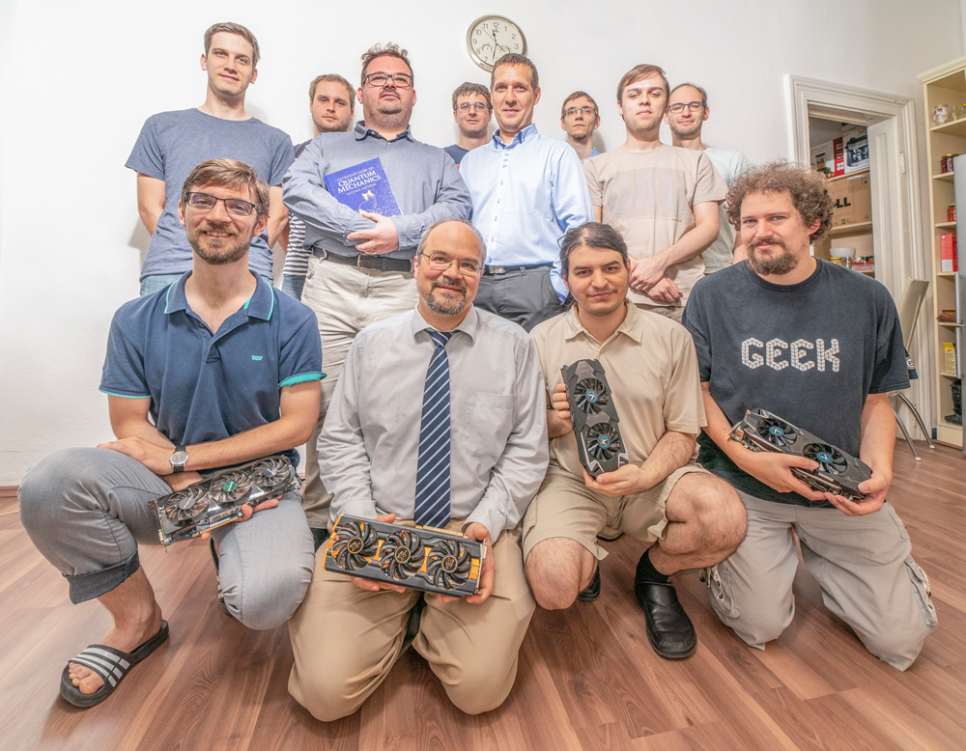
József Illés, managing director of StreamNovation Ltd
The aim of the Prototype, product, technology and service development call is to support the smart manufacturing specialisation defined in the National Smart Specialisation Strategy by providing a predictable source of funding to SMEs for technical and technological development. The scheme focuses on two development phases which are difficult to finance on a commercial basis: prototype development and the market entry of resulting innovative products, services and procedures. The funding scheme thus contributes to translating scientific results to marketable products and services are created which can further enhance the competitiveness and innovation activities of businesses.
One of the winners of the call, StreamNovation Ltd., develops IT solutions. The university spin-off company specialises in GPU software and has developed algorithms for a wide range of application fields. In recent years, however, they have been focusing on computer modelling for quantum chemistry which has the potential to revolutionise, for example, pharmaceutical research.
– Led by prof. Tamás Roska, member of the Hungarian Academy of Sciences, the teaching and practical application of massively parallel computing systems have always been remarkable at the Faculty of Information Technology and Bionics aims of Pázmány Péter Catholic University. Computing on the graphics processing unit (GPUs) of computers has become unavoidable by now – says József Illés, managing director of StreamNovation Ltd. starting to talk about the early days of the company. – And this was the central idea of our spin-off. The basic idea was that while the growth of the speed of central processing units (CPUs) is slowing down, the evolution of GPUs still enables exponential growth in computing power. So, if we build software operation on the latter, it can substantially increase the speed of software running on the computer. This is why StreamNovation, the company founded by three information technology PhD students, a postdoc and me as an economist, focuses on GPUs within parallel systems.
The potential of GPUs were clear as early as in our first projects. A single GPU in a computer could perform the same task at the same speed as 20 CPUs. This enormous difference between computing powers is explained by the fact that GPUs can perform calculations in thousands of concurrent threads, while CPUs can only do so on a few cores.
This massive multithreading requires more attention when designing the task organisation of programs written for GPUs. The small technical details of the individual work phases greatly affect the efficiency of the resulting program. Programmers know it best that two formulas which look identically complex at first can result in substantial acceleration or deceleration. This is often due to the technical limitations of the GPU compiler. To solve such problems, programs to be written for GPUs need to be treated with special compiler techniques which give more control to programmes over side effects affecting efficiency.
– We can go even further by automating codes relating to common task types, as, in our case, the evaluation of typically large mathematical formulas – József Illés continues. – This technological approach is closely related to solutions behind GPU based deep learning devices which are currently turning the industry upside down, so it fits well with the original vision of StreamNovation Ltd.
Our ongoing funded project focuses on the development of new quantum chemical software for molecular simulation which will enable pharmaceutical companies to identify drug candidate molecules cheaper, faster and more accurately. Drug development is extremely expensive (until the release of a drug to the market its development costs can go up to dollar billions) partly because with tradition methods a large number of active substances needs to be examined to find a few promising ones. The selection process, however, can be made shorter with advanced IT solutions. Algorithms and fast computers are now capable of digitally simulating chemical interactions with such precision that it helps reducing the number of potentially effective compounds. Algorithms suitable for this task are extremely complex.
– The new programs will not only be useful for drug research but also for developing new materials or transposing the mechanism of photosynthesis into solar cells – József Illés adds.
The project will provide software support to the filtering of drug candidate molecules with the ultimate goal of creating a procedure which enables the reduction of the number of molecules to be involved in actual drug tests by several orders of magnitude. For this, the software simulation needs to be cheaper and more cost-efficient than the drug test. Until the spreading of GPU based software, it had been theoretically impossible to satisfy this condition due to the large computational complexity.
Experience gained in the quantum information projects may also help StreamNovation reach their long-term goal, namely the creation of the quantum computer. The only difference is that while in former projects molecules represented instruments influencing the biochemical processes of the human body (medicines), in the quantum computer they will represent computer units. So, they need to simulate molecules as quantum systems with identical accurately and but more cost-effectively than actual experiments.







